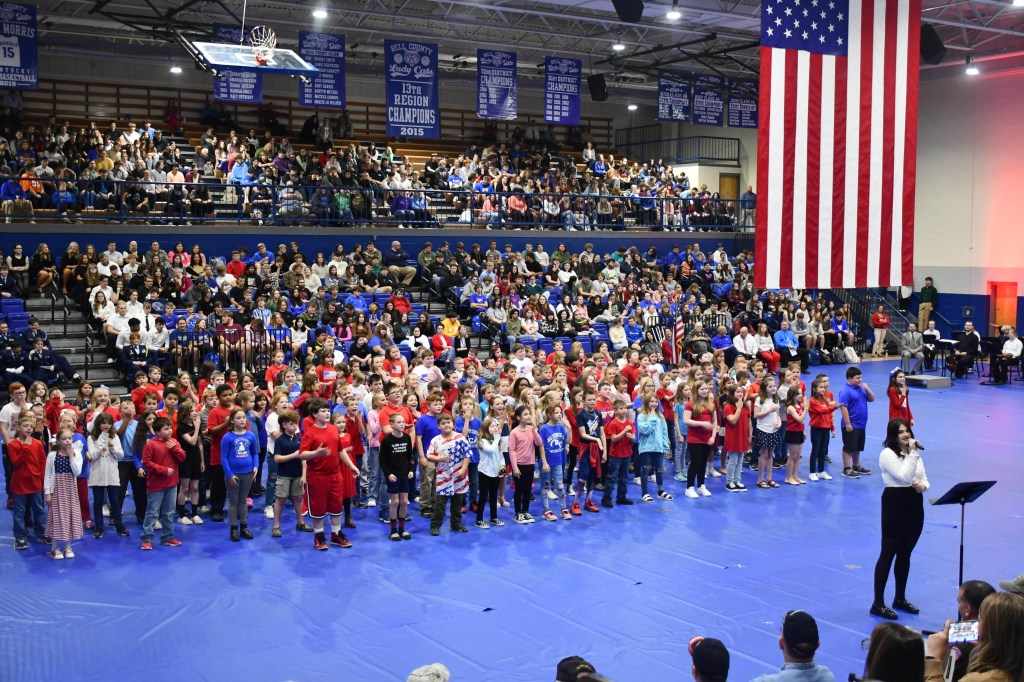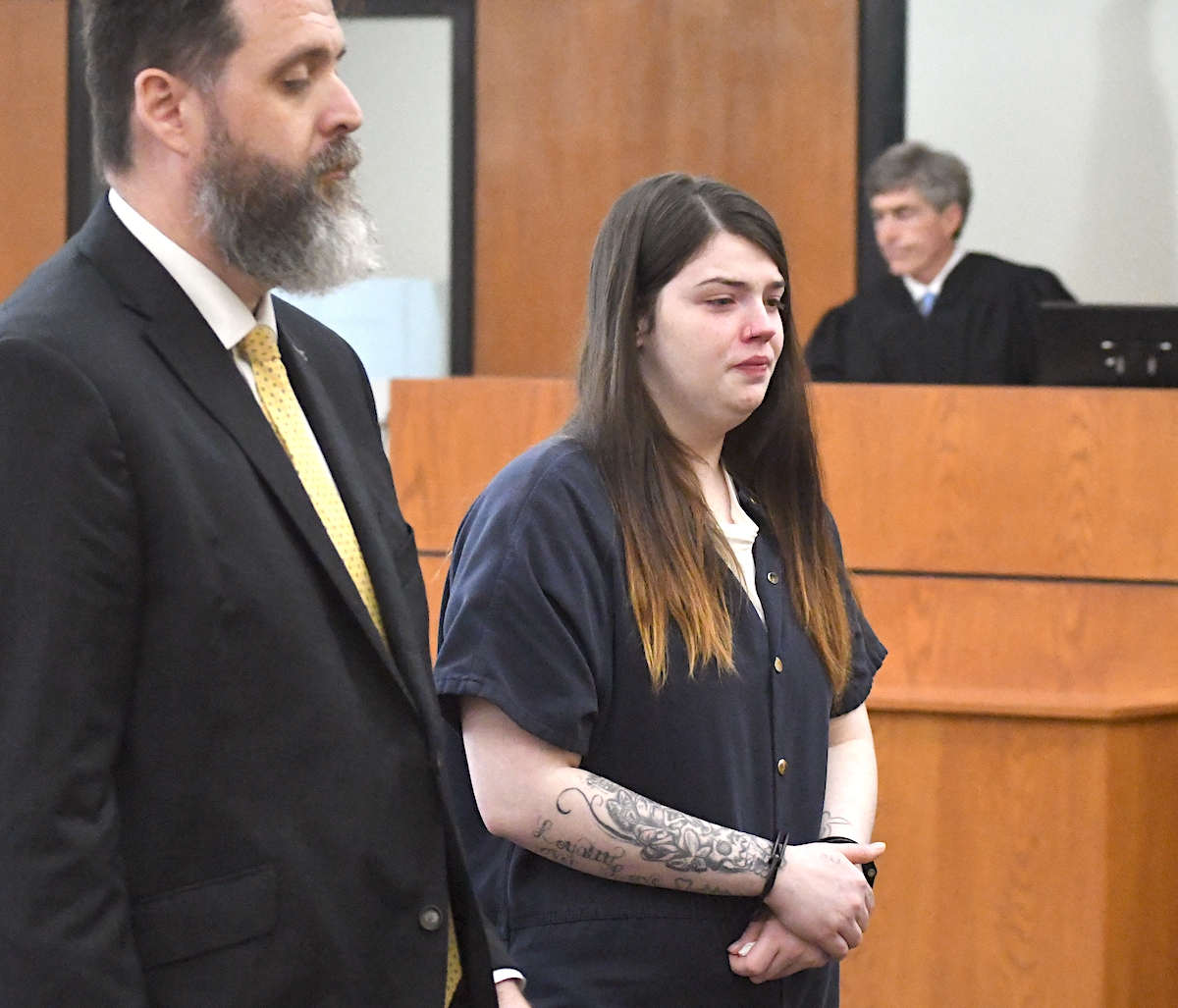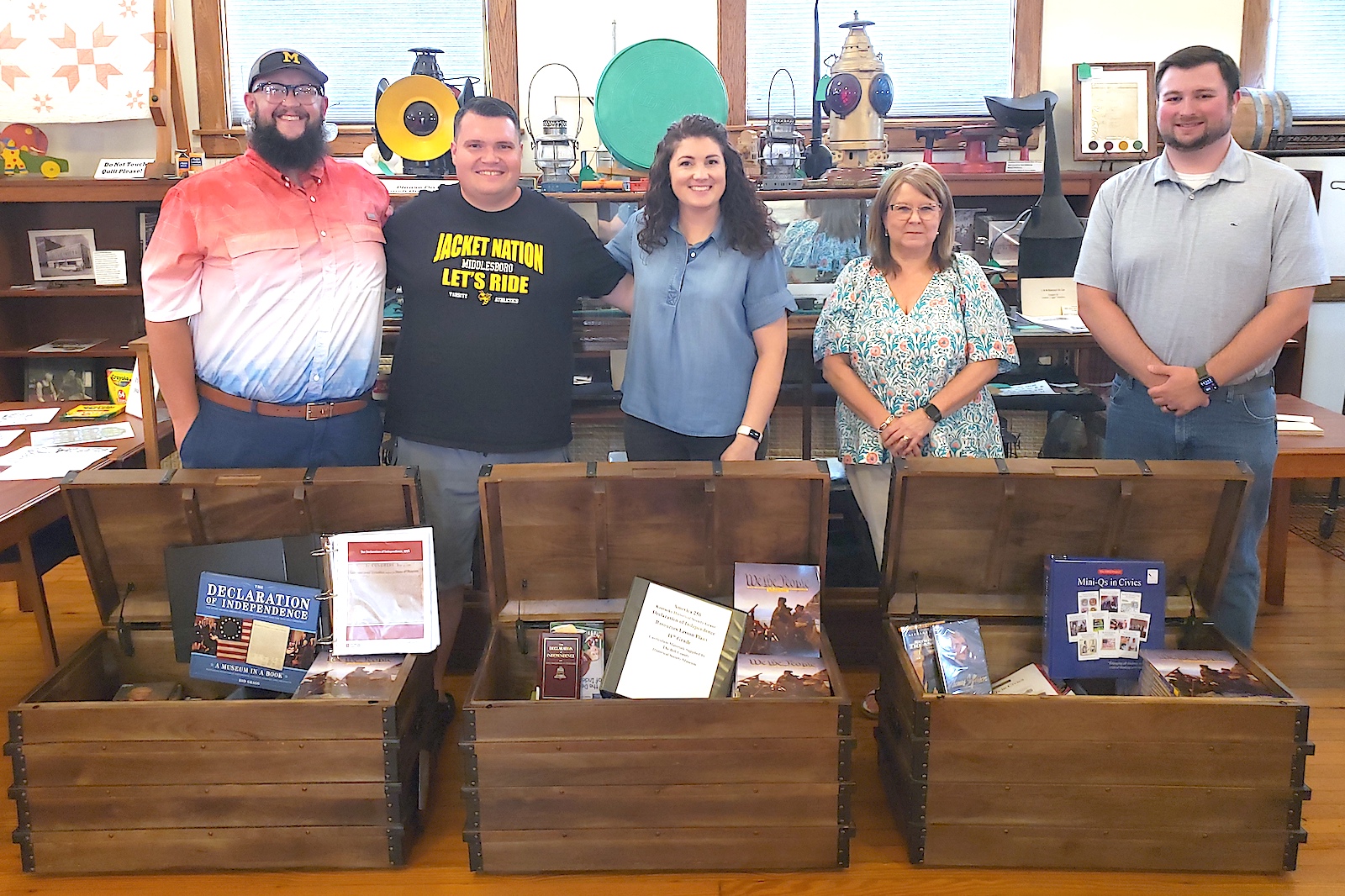Local vet has reason to be thankful
Published 9:41 am Thursday, November 16, 2023

- Third graders from Frakes School Center, Page School Center, Lone Jack School Center, Right Fork School Center, Yellow Creek School Center, Bell Central School Center sing for attending Veterans. Photo by Jordan Brooks
By Jordan Brooks
jordan.brooks@middlesboronews.com
As Thanksgiving approaches, the thoughts of a Vietnam veteran in Bell County turns to his time in the service.
Trending
Ray Welch is originally from Covington, and attended Eastern Kentucky University and graduated in 1964, and commissioned to the ROTC program.
Welch served in the U.S. Army from 1964 until 1981 including a tour in Vietnam. On Nov. 17, 1965, North Vietnamese soldiers ambushed and killed 154 troops from the second battalion, which was part of the seventh regiment in the La Drang Valley at a clearing known as Landing Zone Albany. Welch was part of one of the seven battalions in the area when the battle took place, and he says his unit cleared bodies from the site.
During his time in the army, Welch served as direct processing officer, deputy assistant chief of staff and alcohol and drug patrol officer, before being reassigned to the states an instructor. When he left that position, Welch had earned the rank of major.
Welch recalled getting to see two sides of war, support and combat. He said oftentimes those in supportive roles do not get the same accolades as those in combat, but says the roles are equally important.
“If stuff gets broken you gotta get it fixed, they need bullets,” he said. “They need food, vehicles repaired, so it’s a constant.”
Welch says the camaraderie of those who serve in combat is important.
Trending
“Oftentimes we all know each other and we’re able to renew friendships and we renew experiences,” said Welch. “You will find a lot of veterans may not share their experiences with [civilians] with no military background, but veterans get together and there’s that community where we will share our stories.”
PTSD is very common among veterans after military service, and symptoms can vary anywhere from disturbing thoughts, feelings, or even dreams related to events. Mental or physical distress, difficulty sleeping, and changes in how a person thinks and feels are also common symptoms. Welch said in 1981, the Department of Veterans Affairs had a very different definition of what it meant to have PTSD.
“Initially when I applied with the VA, they told me I didn’t have PTSD because I was working and I had a college degree, because in those days that was the [criteria],” said Welch. “You had to be basically nonfunctioning.”
Welch says he has since been diagnosed with PTSD, and says feels like he manages it fairly well. He says while PTSD can affect both the young and the old, when the draft ended 50 years ago, there weren’t a lot of people in the service who didn’t want to be there. Welch says the services are currently having a hard time meeting their recruiting goals.
“There are guys who have a hard time dealing with it,” said Welch. “You talk to some of these newer soldiers, they’re just tired, they’re worn out, some of those guys made 24 or 25 trips to Afghanistan and other places.”
Welch says he has seen extended deployments and separations from families cause mental mental stress on current recruits and a retention problem in the military.
Welch says while he worked with selective services, or the draft as it is more commonly known, in Detroit during its final years. Welch worked processing people of all branches, and said his time with the selective service was simultaneously the most challenging and most educational. He said during this time, not only did he have a responsibility for new enlisted food and shelter and transportation, but their personal wellbeing, as younger members of the military were more vulnerable.
“The atmosphere, I did not allow our lower ranking people to wear uniforms to and from work out of fear that they would be hurt or abused on their way in and out of work.”
Regarding sharing his own experiences with PTSD, Welch says that writing and sharing his experiences with like minded people help him work through trauma.
“There is a language among veterans and like all things, some veterans will talk to other veterans, and there are some who don’t want to let those dark deep secrets out,” said Welch. “PTSD is a real thing, there are degrees of it, and they can work, and there are treatments.”
“I was lucky enough to go to and photograph a University of Kentucky ball game. They introduced the visiting team, and they got ready to introduce the Kentucky team and the lights went out, the spotlights weren’t a problem, but what I didn’t know was that they were going to set off fireworks,” said Welch. “That was a problem.”






